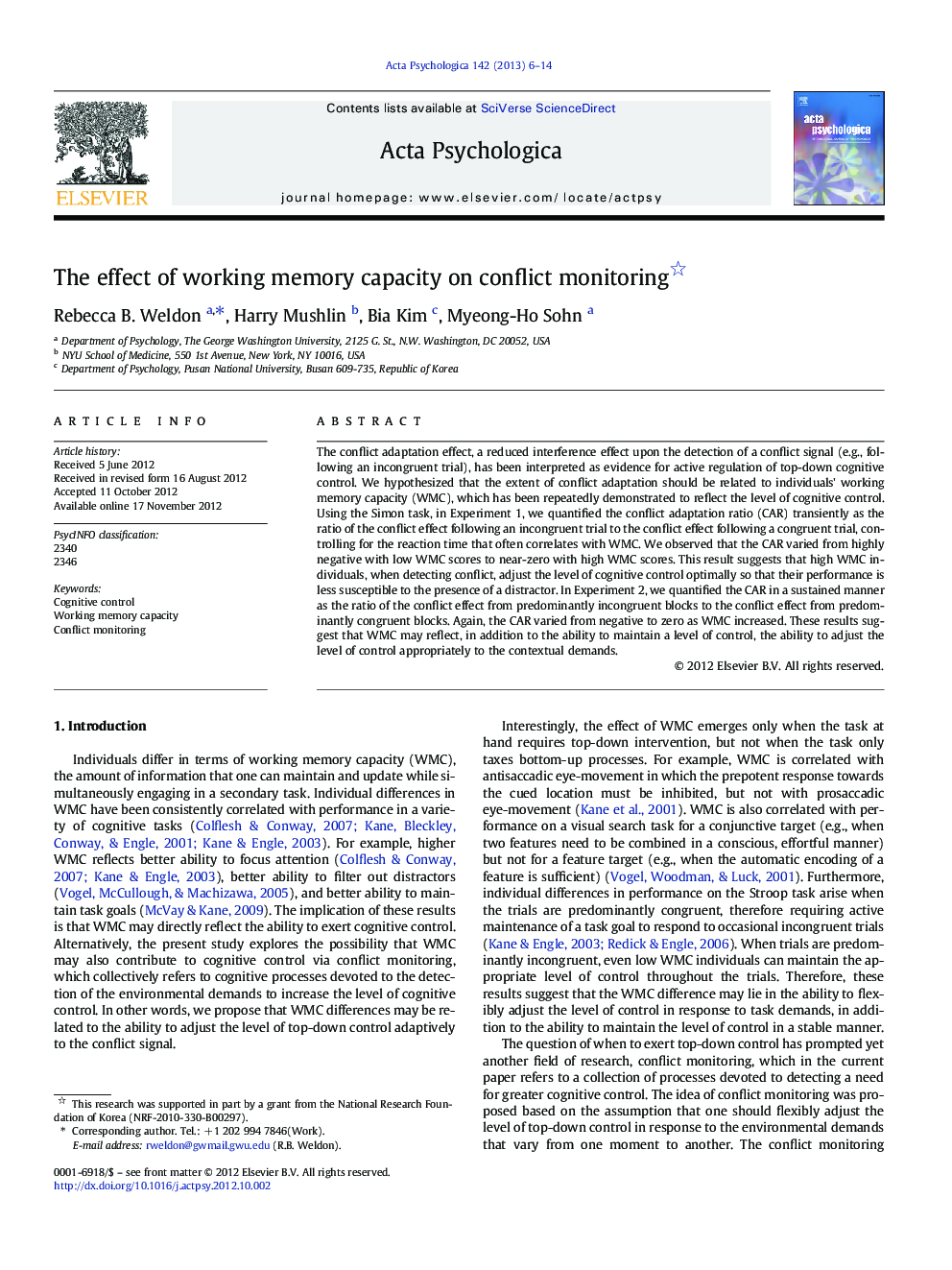| Article ID | Journal | Published Year | Pages | File Type |
|---|---|---|---|---|
| 919932 | Acta Psychologica | 2013 | 9 Pages |
The conflict adaptation effect, a reduced interference effect upon the detection of a conflict signal (e.g., following an incongruent trial), has been interpreted as evidence for active regulation of top-down cognitive control. We hypothesized that the extent of conflict adaptation should be related to individuals' working memory capacity (WMC), which has been repeatedly demonstrated to reflect the level of cognitive control. Using the Simon task, in Experiment 1, we quantified the conflict adaptation ratio (CAR) transiently as the ratio of the conflict effect following an incongruent trial to the conflict effect following a congruent trial, controlling for the reaction time that often correlates with WMC. We observed that the CAR varied from highly negative with low WMC scores to near-zero with high WMC scores. This result suggests that high WMC individuals, when detecting conflict, adjust the level of cognitive control optimally so that their performance is less susceptible to the presence of a distractor. In Experiment 2, we quantified the CAR in a sustained manner as the ratio of the conflict effect from predominantly incongruent blocks to the conflict effect from predominantly congruent blocks. Again, the CAR varied from negative to zero as WMC increased. These results suggest that WMC may reflect, in addition to the ability to maintain a level of control, the ability to adjust the level of control appropriately to the contextual demands.
► We propose a novel measure of conflict adaptation that controls for effects of reaction time. ► Working memory capacity is positively associated with the transient conflict adaptation ratio. ► WMC is positively associated with the sustained conflict adaptation ratio. ► These findings are largely independent of response repetition effects. ► WMC may reflect appropriate adjustment of cognitive control in the presence of conflict.
